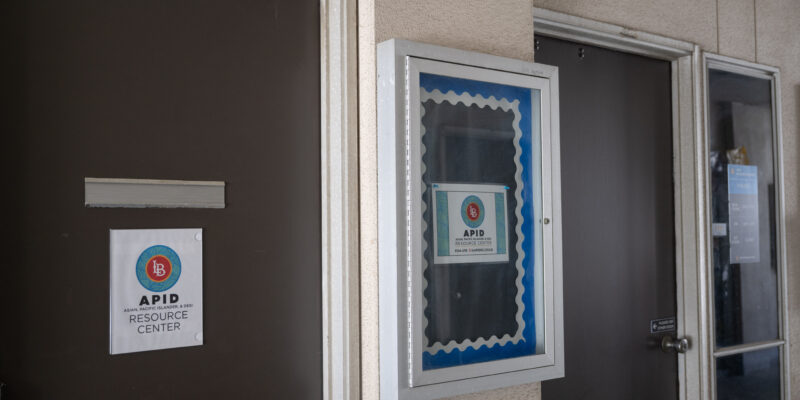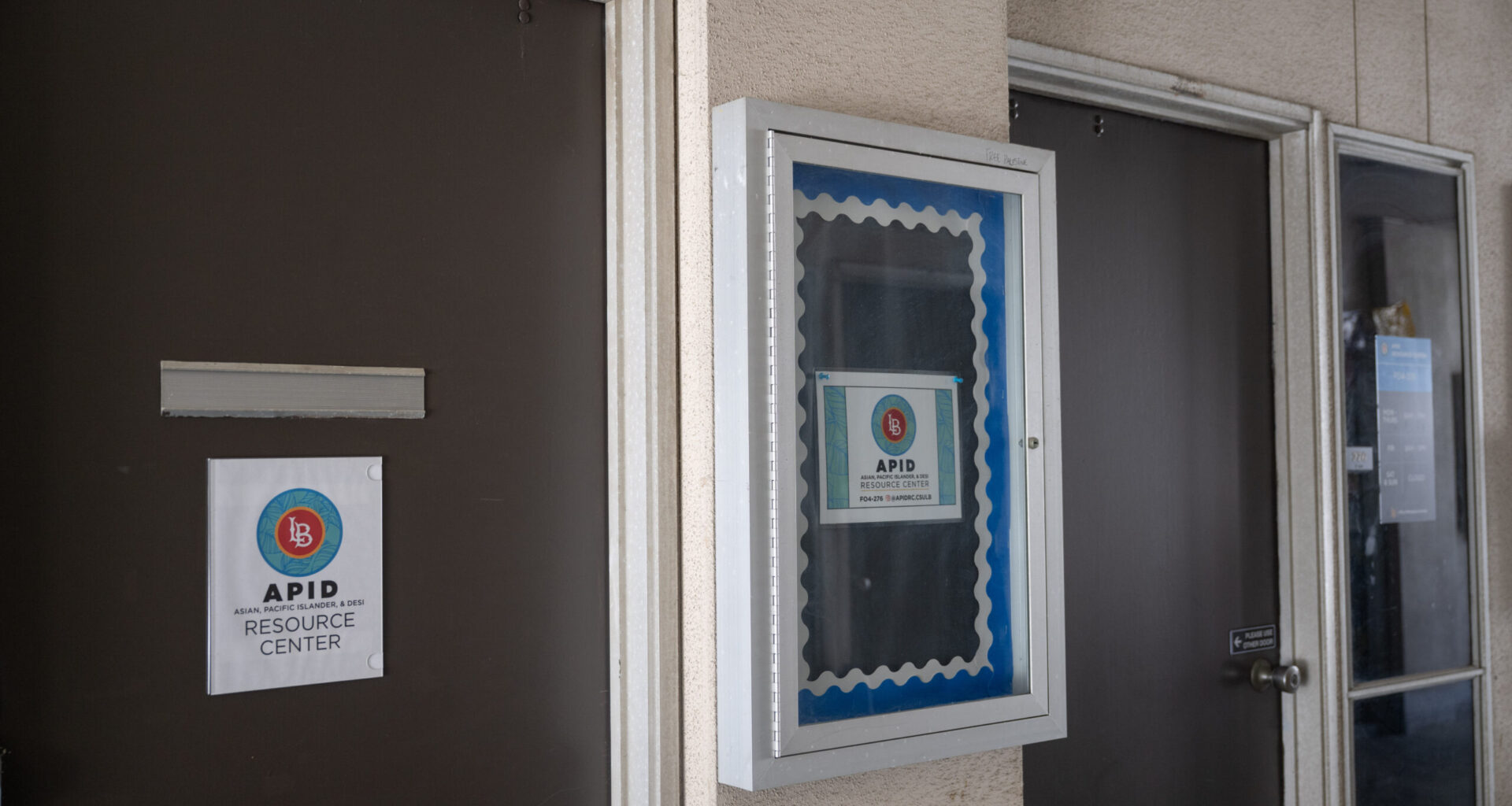
The Asian Pacific Islander and Desi Resource center located at FO-276 will receive grants to support minority student initiatives. Long Beach State received $1.8 million to enhance the AANHPI student educational experiences. Jorge Hernandez | Long Beach Current.
Long Beach State received a $1.8 million grant through the CSU Asian American, Native Hawaiian and Pacific Islander Student Achievement Program to support campus initiatives that enhance student educational experiences.
These initiatives include outreach events and workshops, leadership development and investments toward the Asian, Pacific Islander and Desi Resource Center, a place aimed at expanding educational access, opportunity and success for low-income, first-generation AANHPI students.
“I envision [the grant] assessing and supporting the areas of opportunity the school has to close equity gaps academically and socially,” Keila Tupua, associate director of AANHPI Initiatives, said. “It’s about how we can holistically better serve AANHPI students on campus.”
The CSU Asian American, Native Hawaiian and Pacific Islander Student Achievement Program award is a multi-year grant that provides annual funding from 2025 through 2030.
The funding is built into the California Education Code for community colleges and CSUs.
“The CSU Chancellor’s Office wanted campuses to have multi-year grants, which allows us to actually plan ahead, set both short-term and long-term goals and have enough time to make them happen rather than scrambling year by year,” Tupua said.
Department chair and professor of Asian and Asian American Studies Barbara Kim agreed with the funding’s impact and said the grant allows her department to team up with other divisions.
“This funding is different because it allows us to collaborate with other divisions like Academic Affairs and Student Affairs, which is much more front-facing and provides programming, events and support,” Kim said. “That partnership means we can work with campus partners who want to support students but often don’t have access to funding.”
The APID Resource Center has undergone significant improvements in the past, and Kim anticipates even more growth with a growing student body.
She emphasized how critical it is to create a sense of belonging in these cultural spaces.
“One tangible thing [Asian American, Native Hawaiian & Pacific Islander Student Achievement Program] has done is strengthen the APID Resource Center,” Kim said. “In the past, these spaces were basically storage closets. Now they’re welcoming spaces with food, study space and resources like scantrons. Students can rest, study and build community.”
The CSU program originated in June 2022, when Governor Gavin Newsom approved the proposal to create the California AANHPI Student Achievement Program.
Before this year’s award, the U.S. Department of Education funded a $1.5 million grant in October 2022.
In addition to the programs intended to enhance student experiences, the award will help launch new courses in the department, including the first Pacific Islander and Native Hawaiian Studies Experiences course, which will begin next fall.
“The value is clear,” Kim said. “It can only help to understand the histories and contexts of Asian American, Native Hawaiian and Pacific Islander communities, especially in California, where 15% of the population is AAPI, so knowing about these communities—whether you’re working with them, serving them or part of them—is incredibly important.”
Tupua hopes the funding will help accomplish specific goals, including minimizing challenges certain AANHPI students face.
According to Tupua, AANHPI Initiatives noticed gaps when they desegregated the data, including some of the smaller subgroups that were not performing as well as the aggregated AANHPI data.
“Some of our Pacific Islander students and some of our other Southeast Asian student populations are falling under that, so our goal is to increase their graduation rates by a certain percentage to get them to close that equity gap even smaller,” Tupua said.
Some CSU campuses do not offer the same courses or have an APID Resource Center, allowing CSULB to play a major role in collaborating with other universities as they help their students get involved in the program.
“Because of this grant, the CSU faculty and staff and administrators on each campus are creating this opportunity for all of us to come together so that we can see what we are all doing in each campus to support students,” Kim said.
The APID Resource Center is located in Faculty Office 4, Rooms 276 and 278.
Hours:
Monday – Thursday: 8 a.m. to 7 p.m.
Friday: 8 a.m. to 5 p.m.

